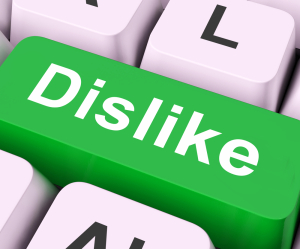Israel’s youth experience a surge of anti-Semitic belligerence online, but learn to fight back.

(Photo: shutterstock)
Over half of Israeli youth experienced online anti-Semitic attacks on social media networks in 2014, and especially after Operation Protective Edge, according to a poll conducted for the Anti-Defamation League which was presented by Israel Hayom.
The poll questioned 500 Israeli internet users aged 15 to 18. More than half of them (51%) reported that they had been the targets of anti-Israeli online attacks in the past year, compared to 36% in 2013.
Nearly two-thirds (61%) said that during and after Operation Protective Edge this summer, they experienced more anti-Semitic attacks than usual.
A vast majority (83%) said they had been exposed to various types of anti-Semitism on social media, compared to 69% last year, and 20% said that they had been personally targeted by anti-Semitic attacks, compared to 13% in 2013.
The poll shows that Facebook is plagued with anti-Semitism, which is the site where 84% of the teenagers encountered anti-Semitic attacks online, compared to 70% in the prior year.
Seventy-six percent of young Israeli internet users also reported seeing anti-Semitic content on social media pages, compared to 68% in 2013.
Anti-Semitic songs and video clips were reported by 73% of the respondents, compared to 64% last year.
Threats of Physical Violence
When it came to personal attacks against Israeli internet users, 37% of those who said they had been vilified for being Israeli said they had been cursed at; 32% reported that their access to certain pages and sites had been blocked; 9% said they had been blocked from various forums, and another 9% reported that they had been threatened with physical violence.
Israeli Youngsters Fight Back

Israel’s youth are not remaining passive in the face of anti-Semitic internet content, with 43% of respondents saying they had contacted the administrators of social media pages and sites and asked that the content in question be removed; 24% said they had written comments condemning the anti-Semitism; 21% urged their friends to contact administrators about anti-Semitic content; and 21% told their parents about it.
The victims themselves have become more active, as 30% said they had responded to their attackers, compared to 20% in 2013.
Responding to these disturbing statistics, Anti-Defamation League National Director Abraham Foxman stated that “the more Israeli youth are using the internet, the more they encounter racists … who want to expose them to anti-Semitic and anti-Israeli content.”
However, Foxman said, “Israeli youths don’t feel helpless. Truth be told, the majority of those polled said they had initiated responses to anti-Semitic content, whether by reporting it to site administrators or asking that it be removed.”
Tell us in the comments below: Have YOU encountered anti-Semitic or anti-Israel abuse online? How do YOU combat hateful messages on social media?
Author: United with Israel Staff
(With files from Israel Hayom)
Send Passover Packages to Needy Israeli Soldiers - Bring Them Joy!
We are honored to thank the young men and women of the IDF who risk their lives every day to protect the citizens of Israel. Since October 7th, soldiers have been on the battlefield for months - many are hoping to come home for Passover.
Join us in sending Passover food packages (and personal notes) to Israeli soldiers and their families.
Many soldiers spend the Passover holiday with needy families back home. The soldiers greatly appreciate your love and concern. Bring them Passover joy!
CLICK HERE TO SEND YOUR PACKAGE AND NOTE TO ISRAELI SOLDIERS!




